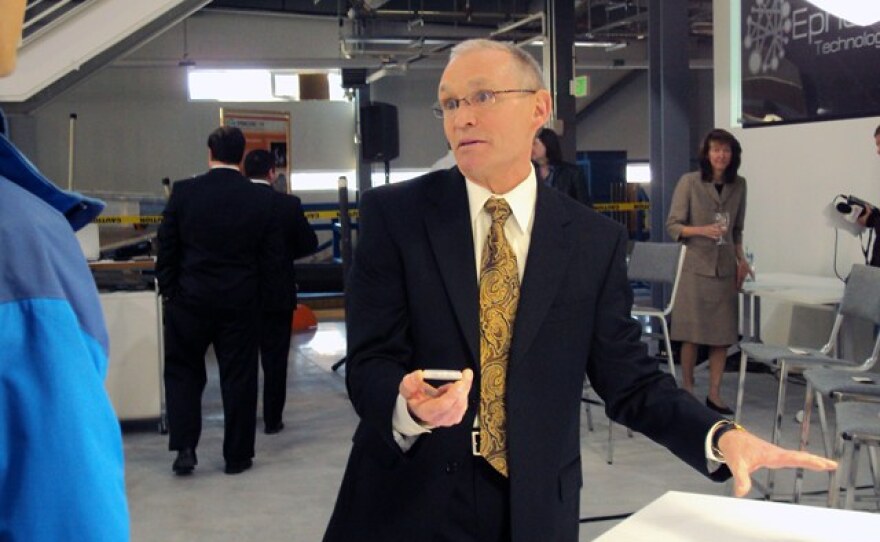A small Syracuse lighting startup was at it again Tuesday morning.
For the second time in a month, Ephesus Technologies was able to draw a big crowd for the unveiling of a LED lighting prototype. In March the company put on display a LED lighting system for use in stadiums.
But Tuesday’s event had a few more suits-and-ties as several state and local politicians and economic development officials were present.
“[Ephesus] I think has earned the distinction of tapping more assets across the state than any company I know of,” said Ed Bogucz, executive director of the Syracuse Center of Excellence, as he introduced the company.
The Syracuse Center of Excellence not only played host to the event, but along with CenterState CEO, also gave Ephesus a $50,000 grant for the project. The firm also picked up $1 million in tax incentives from Empire State Development.
While Ephesus is headquartered at the Syracuse Tech Garden, an incubator, it developed the prototype at the Canandaigua Center of Excellence, which partners with the one in Albany.
Yes, that’s a lot of state-backed assets.
“We did it because of central New York and the cluster of technology and innovation,” says Ephesus President Joe Casper.
Production of the prototype being done at the Center of Excellence in Canandaigua is good news for that center. It has struggled since opening over a decade ago and recently merged with its larger counterpart in Albany.
Diamonds are an LED’s best friend
Casper’s company was also able to continue its partnership with Group4Labs to develop the technology, called “gallium nitride on diamond.”
Diamonds are used to attach the LEDs to a wafer.
“This [diamond] technology allows us to be more efficient at removing the heat,” says Casper.
Heat is the big hurdle for improving LEDs, he says.
Their new prototype is able to take 5 watts of energy and convert it to the equivalent of 100 watts of light.
Their price point will be about $8 per light, which is a few dollars more than more common compact fluorescents, but the bulb is expected to last longer, Casper says.
“They’re not all that much different,” says Syracuse University electrical engineer Dr. Philipp Kornreich.
All of the new LED lights are in the same range for efficiency of Ephesus’, but cost will play a big factor, he says.
Ephesus has already put more than $20 million into developing the technology. A lot of that funding came from Casper’s sale of a previous company in Washington State.
Casper says Ephesus is about $5 million away from having the cash on hand to ramp up production of the lights. The firm is planning to do the production in central New York, which it claims would create about 1,000 jobs.









